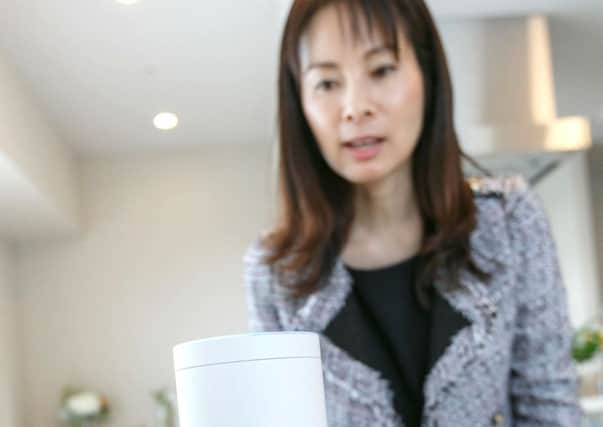Laura Waddell: It’s time to wake up about giving away our data online


Voluntary erosion of privacy started small. Before personal profiles became de rigeur, Friends Reunited was a novel idea; hooking up online with old school chums still required jumping through some signing up hoops and what information was listed was scant and used for our own clearly defined interests. It feels incredibly innocent looking back now. Facebook evolved where others stalled; in its day, Myspace felt massive, but Facebook’s role in our lives, has eclipsed it. I remember seeing Myspace URLs scrawled on walls of music venues; now, we’ve grown used to documenting our daily lives using our real names, easily accessible by anyone who cares to look.
The social media giant integrates its functions with all manner of convenient log-ins to other websites, linking one account to many others that feel, on the surface, to be distantly removed but which are covered in the cookie crumbs we’ve left tracked across the web, an easily identifiable trail. But it isn’t only the often subtle, functional way that data is harnessed that has taken us into a new era of the trade of personal information; it’s the social habits we’ve formed en masse too. We’re complicit in giving ourselves away, day after day. Checking in to locations is passe now, but once was all the rage. Rating shops and services. Gaming on our downtime and boring everyone else on our timelines with FarmVille requests and language learning scores.
Advertisement
Hide AdAdvertisement
Hide AdMore intimately, building family trees and channeling our closest relationships through Facebook Messenger. We carry ourselves online like one of those see through vinyl bags meant as a fashion statement; but instead of artfully chosen accessories, we’re revealing everything about us that is consumable, without paying much attention to what we’re giving away and who is profiting from it.
We’ve become used to sharing details of our lives unthinkingly – in part, because everyone else is doing it. Creating constantly updated online files on ourselves, no matter how mundane the ablution, is the new normal. But we need to cut the autopilot and start pro-actively thinking about what we share online.
Discussions about the social ramifications of this have clustered around critiques of ego, with young women who take selfies bearing the brunt of scorn, but what’s more concerning is that the stuff of our everyday lives is consumable, in part for what advertisers can glean about our habits. We’ve made ourselves saleable. But ads are only one side of the coin.
Since Cambridge Analytica hit the headlines, there’s a slow awareness of how reliance on social media as an information source might impact our democracy. It’s not just a case of what we choose to follow - clicking on what we already agree with, or might be susceptible to, encourages more of it to be fed to us algorithmically, placing us in polarised silos, while the diminishment of experts and trust in traditional media, alongside the editorial plague of false equivalence, rages in the background.
Our politics hasn’t really caught up with the reality of digital living, instead pursuing asinine browsing restrictions. GDPR felt inherently boring; the preserve of increasingly stressed middle management emails to staff, or the reason for pop ups blooming like weeds on our favourite websites. It was certainly boring for anyone who had to comb through files, emails and address books for compliance. But it did mark a step in the legislation of individual rights and stored information.
In many cases, it isn’t possible to find details of protest events outside of Facebook listings, even where what’s being opposed is unequal distribution of resources or democratic concerns. Digital ownership still feels like the preserve of special interest in tech or ethics, but mainstream leftwing politics concerned with ownership, production and the health of our democracy needs to widen to encompass data harvesting and face up to its impact.
I’ve been reading Greta Thunberg’s short, striking book ‘No One is Too Small To Make a Difference,’ a collection of the young activist’s speeches at climate change rallies. Beside underlining key points about the environment and the state its in, much of the book asks the question how to make people actually care about the subject.
We asked the same about Trump, whose success was in spite of - and partially because - his treatment of women and minorities. We know cruelties are being meted out systematically in migrant camps right now. As Greta says in her book, people have asked why, instead of protesting, doesn’t she go to school and study to one day become a climate change scientist? Her answer is that we already know the facts. We know we are in an era of extinction. The problem is making people care – individuals, media, and politicians. And so many people just shrug. I ask myself, what have I done to contribute? The answer is very little. The same is true with taking data seriously.
Advertisement
Hide AdAdvertisement
Hide AdHow do we interrupt our daily resignation to the way things are? How do we make ourselves care enough to take action?
I suppose a start is asking questions about what we’re OK with, on a personal level, instead of just going with it. Are you OK with people overhearing your domestic conversations?
Are you OK with consumer profiles of you existing that contain your whereabouts and habits and everyone you correspond with? Are you OK with your loved ones being sent political messages that play on their deepest fears and insecurities?
Data harvesting grew to gigantic proportions because of social shifts towards habitual self-revelation. Another social shift is needed to disrupt it.